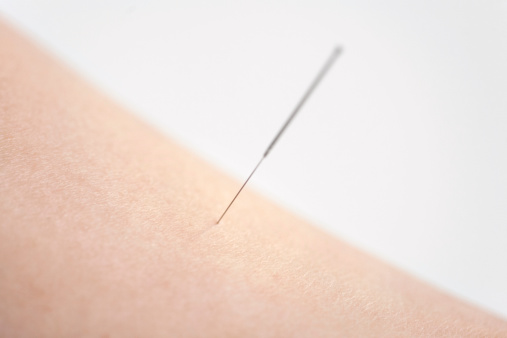Treating trigger points and reducing pain
I’ve written about trigger points before. They’re gnarly places in a muscle or soft tissue region of the body that totally elicits pain, localized or referred, when it gets pressed. As physiotherapists, we can treat trigger points and reduce or completely abolish the pain that they cause.
We use instruments, such as with the Graston Technique, or even with just our hands, but these techniques attempt to address a specific taut band of tissue that’s inside your body from the surface, meaning that we never really get directly to the trigger point with these techniques.
Enter Dry Needling. It’s one of the most effective ways to treat a trigger point. It’s a technique using a solid filament needle inserted directly into the trigger point. Different than acupuncture, which generally requires multiple needles placed along different locations on the body, we use just a few needles, depending on the body part.
We palpate and find the trigger point in the muscle, insert the needle directly into the tissue, and manipulate the needle to elicit a twitch response and break up the trigger point. The needle may stay in the trigger point up to a minute, but mostly commonly only stays in for a couple seconds. The treatment may feel uncomfortable, but not sharp or painful. The needle is pretty thin, so generally you don’t feel the needle at all.
Common side effects include some soreness in the local area that may last for 4-6 hours, or in extreme cases, some bruising. But with correct treatment and follow up care, the soreness and possible bruising can be greatly reduced.
Dry needling is not used in isolation. It becomes more effective when accompanied by selective stretching, soft tissue mobilization, and strengthening to restore normal movement.
Pain caused by trigger points can be a complex issue, where someone may feel strong and mobile, latent trigger points can cause underlying pain and movement dysfunctions that can affect daily activities. A thorough physical examination can reveal latent and active trigger points so that we can effectively treat a patient as a whole, not just a body part.
If you would like more information, please call Professional Physical Therapy and Training at 973-270-7417. Our offices are located within the YMCA locations in Madison and Summit, NJ. You do not need to be a member of the YMCA to visit with us.
